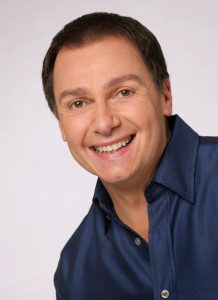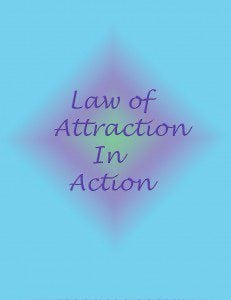 I’m delighted to have Dr. Mark Chironna, certified life coach, author, and spiritual director as my guest today. Dr. Chironna’s authentic and compassionate approach to purposeful, destiny-infused living has transformed lives everywhere through one-on-one mentoring, speaking engagements, print and electronic media. His book, Live Your Dream, is an inspiring and practical handbook for strategic living. His latest release, 7 Secrets to Unfolding Destiny, is a practical, interactive tool that will help you reach your full potential.
I’m delighted to have Dr. Mark Chironna, certified life coach, author, and spiritual director as my guest today. Dr. Chironna’s authentic and compassionate approach to purposeful, destiny-infused living has transformed lives everywhere through one-on-one mentoring, speaking engagements, print and electronic media. His book, Live Your Dream, is an inspiring and practical handbook for strategic living. His latest release, 7 Secrets to Unfolding Destiny, is a practical, interactive tool that will help you reach your full potential.
With Self-Love Month approaching in January, I talked Dr. Chironna and asked him to share some of his insights with you. Finding your purpose is an act of self-love. If you can tap into your own destiny, you give yourself a major key to happiness. That’s definitely a loving place to be! Here’s what he had to say:
Why do you think many people don’t live their dreams? I believe at least in portion that one of the reasons is, first and foremost, they don’t know how to get from where they are to where they want to be. Sometimes the root of that stuck state is tied to second guessing their own capability, capacity and competency to get there because by the time they’re 18 years old they’ve heard negative and non-affirming statements millions of times more than they’ve heard affirming statements. In spite of these incredible in-built desires that can lead them to the kind of outcomes they deeply long for, they fight within themselves in a way because they’re constantly having to overcome the kind of negative self-talk that’s gotten so deeply imbedded they’re not even fully conscious of it anymore. 70% of negative self-talk goes undetected by the conscious mind. The lions share of those negative belief systems are at work under the surface until we learn how to unearth them and look at them face to face to get unstuck.
How can someone begin to find their purpose when they’re stuck? The reality is more people than not are in their predicament because they have spent a good portion their growing up years listening to what others told they should, they ought, they must do. They never gave themselves permission to ask “Are those things congruent with who I am?” Your identity is your destiny and when you’re told you should, ought or must do this, all very unaffirming drivers which negate any road away from genuine self-esteem, and self-acceptance, you end up living to please other people. And you spend all your energy making them accept you rather than you coming to terms with being comfortable in your own skin so you can bring your unique factor to the table and give legitimate voice to who you really are. The real issue in terms of what do you do begins with asking the question “Who am I?” because your identity is ultimately your destiny.
How does fear hold us back? Most people live in what they believe is their comfort zone, which is an illusion. It’s a little box that you oscillate back and forth in between fear of failure and fear of success. You never get out of the box because when you get too close to failure, you put on all the effort you can to not deal with the fear of failure so you run back to success. But when you get too close to success you question whether you have the capacity to handle it so unknowingly you sabotage yourself and head back towards the fear of failure. I call that the comfort zone because it’s the place we’ve become comfortable operating but not the place we’re intended to operate from.
I have found that the fear of failure and fear of success are the polarizing factors around which the other fears constellate. You’ve got to learn to face those fears down, and challenge them, argue with them and not assume that just because you’re feeling them it’s who you are. At the core of your being, who you are is far greater than that.
Why do you think so many people don’t love themselves? There is a medical term that [the late] Dr. Conrad Baars, an eminent psychiatrist called it–deprivation neurosis. He meant that oftentimes in life, no one gives us the gift of affirmations so we never can become who we are and celebrate who we are. Significant others have always praised our performance or demanded perfect performance and never simply celebrated our essence. When I don’t get the gift of affirmation that is absolutely tied to who I am as apart from what I do, I end up believing I have to do to become who I am.
With that we set up a whole cycle of pain, disappointment and sabotage because no one has ever said “You’re a wonderful person” or “I love you.” All of us growing up need someone who offers us that unconditional love and affirmation. If you didn’t get it you need to figure out how to appropriate it into your own life with your own disciplines and practices and also by building relationships with people who are not toxic or dysfunctional. [You need} someone who genuinely cares about you and can mirror back that you’re a good person and have gifts and capacities. All of us struggle with this. To me the key to why people don’t celebrate who they are is they don’t feel good about themselves. They feel they don’t measure up.
How would you define self-love? When I’m talking about self-love I’m not talking about an egocentric narcissist, consumed with myself, which is born out of insecurity. Self-esteem is a feeling, a reflection of the respect, love and value you have for yourself. It’s a skill that has to be developed. We’re not taught that skill in school. At some point you have to understand that you have to affirm and value who you are. If you don’t, you can’t give anyone else anything because you can’t give what you don’t have.
When people are in low ego, it means they are really comfortable in their skin. They don’t have to prove anything to anyone. They celebrate who they are and are in very high esteem because nobody can take away from them the value they know they’re worth. They live an affirming lifestyle and treat themselves in ways that they would like to be treated. Someone who is truly living an affirming lifestyle has the ability to bring others people into aliveness because they’re not carrying around the excess baggage of trying to please anybody else. They’re done playing that game.
How can people increase their self-love? You can spend the rest of your life looking at what’s wrong with you. Then you have people in positive psychology movement like Martin Seligman who ask, “What’s right with me?” Learning how to apply those principles helps you build up a reserve internally of affirming feelings and a sense of being motivated to getting your want to like yourself back. Then your how to will follow. If you work with these principles, they will work with you. In my opinion they’re inexorable laws. They govern the functioning of human existence. When we can tap into those things we can sit back and let those principles operate in us and bring us into a real sense of freedom and self-worth and, all that’s tied to learning how to appropriately and diligently love who we are.
–Check out Dr. Mark Chironna‘s latest book, 7 Secrets to Unfolding Destiny.
*********************
Take the self-love challenge and get my book, How Do I Love Me? Let Me Count the Ways for free at http://howdoiloveme.com. And you can post your loving acts HERE to reinforce your intention to love yourself. Read my 31 Days of Self-Love Posts HERE.
Please leave comments under my posts so we can stay connected.

